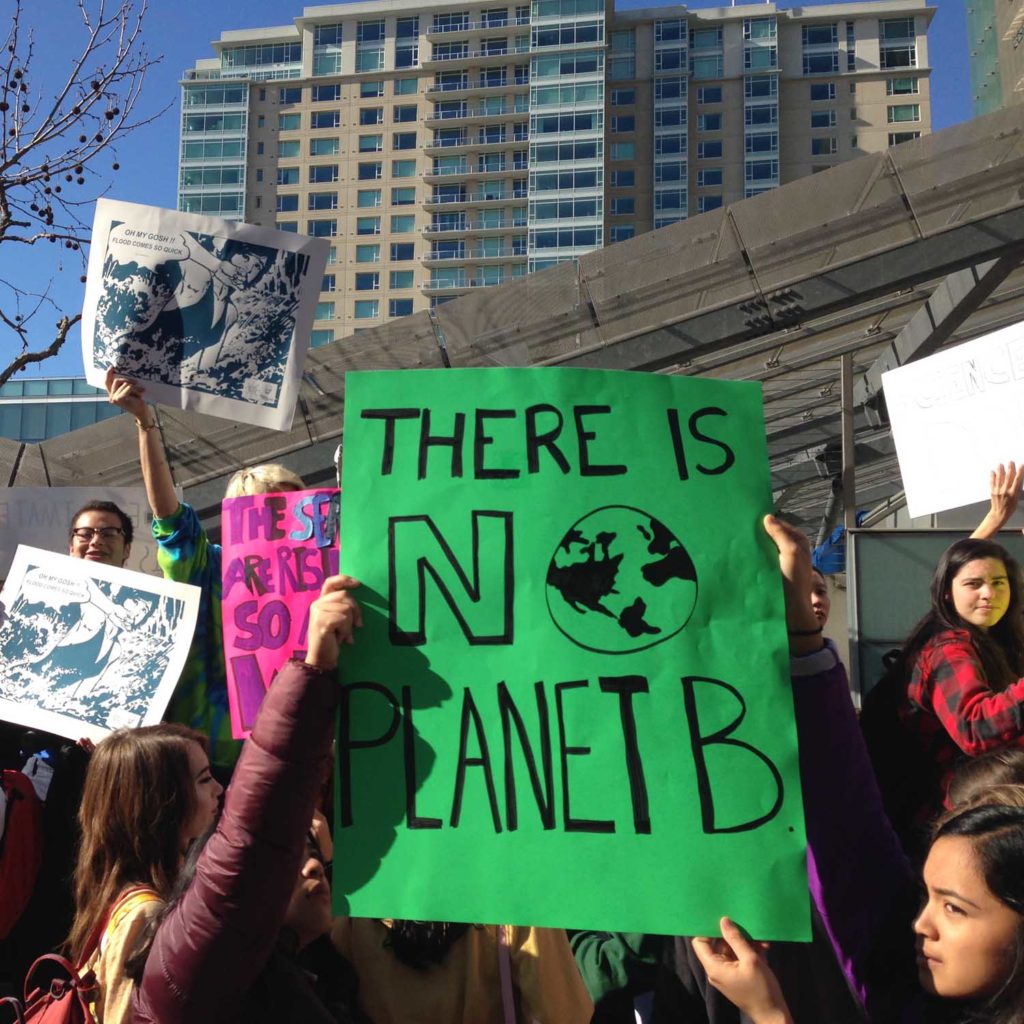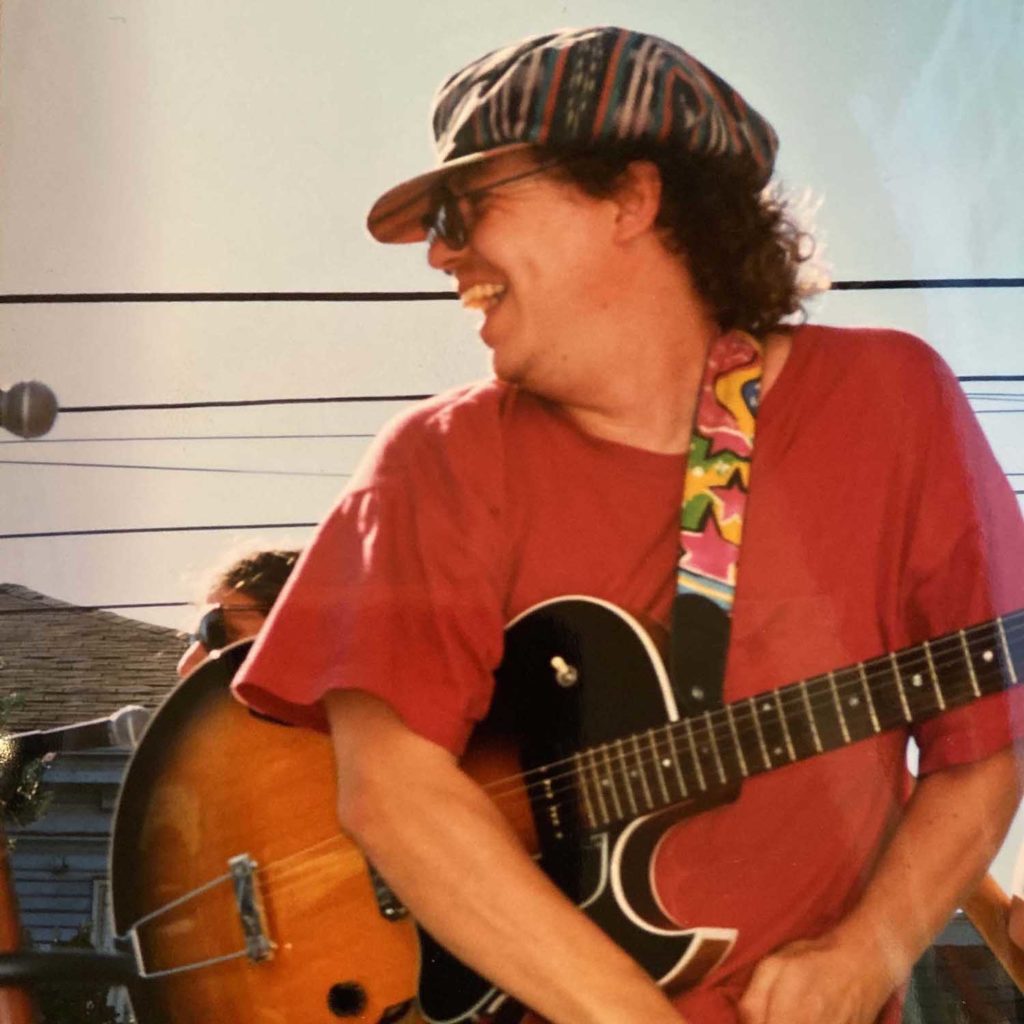As I was combing through the same box that unearthed the prophetic Australia Under Siege map the other day, I came across an essay I wrote exactly two decades ago to commemorate Y2K. 20 years ago seems like the stone age now — there were no smartphones (the iPod was released in 2001), social media, or blogs (both MySpace and WordPress launched in 2003). It was before 9/11, Iraq, Black Lives Matter, Standing Rock, Me Too, and certainly well before climate change chaos was on everyone’s mind. It was pre-Trump, but also pre-Obama. Even pre-GWB.
And yet, two decades also feels like yesterday when viewed through the epochal lens of modern day capitalism, the industrial age, or western civilization itself. As I was reading the stern words written by my 32-year old self, I was astonished by how little has changed since the turn of the century / millennium, at least in terms of our consumer society manipulated by corporate forces that put profit and extraction above all else.

What has changed though, and what I feel hopeful about, is that the movements to resist the dominant extractive and oppressive paradigm have progressively grown and multiplied, to the point where I feel like we’re gaining significant critical mass to make this next decade the one when we finally turn the ill-fated mothership towards more sustainable sailing with big systemic changes such as the Green New Deal.
Set in motion by the WTO protests in the late 1990s and the post-2003 anti-war movement, a nascent climate movement and Occupy Wall Street kicked things into a higher gear at the beginning of the last decade. Since then there have been too many social, economic, and environmental justice movements to count, culminating with the Sunrise Movement, Extinction Rebellion, Fridays for Future, and Greta Thunberg’s sudden rise to climate fame just this past year.
Speaking of Greta, I realize that her blunt and unvarnished indictments of the status quo resonate with me so greatly because they remind me of my younger self. While a bit rough around the syntax edges at times, I admire the clarity of purpose and lack of politeness in my budding writer’s quest to explore why we humans would be trashing the planet we cohabit and depend on, while making promises to do better, generation after generation.
No problem with being a bit older, softer, and perhaps even wiser. After all, the longer you’re around, the more you can appreciate the nuance and complexity of sharing a habitat with (now over) 7 billion others. And yet, at the very core of our existence there is a truth we all must reckon with, no matter how creatively our minds may compartmentalize it into oblivion: ecological debt has its limits, and there is no Planet B.
As another generation is waking up to these inexorable realities, I am inspired to be part of an older generation unwilling to ignore them. With that, please allow me to hand it over to my younger self.

1999 
2019
Speeding into the next Millennium
A perspective on the cultural and spiritual decay of Western civilization
As the human express is quickly roaring into its third millennium after the birth of Christ, I can’t help but desperately try to jam my foot on the brakes hoping to at least catch a glimpse of where it is headed. Not that the birth of Christ would be equally important to all humans or even mean anything to some, but this calendar seems to be the prevailing measurement of time in Western civilization, and it clearly is Western civilization that is shoveling the coal into the locomotive’s furnace.
So we are rapidly approaching a major landmark in human history lending itself to evaluation, reflection and introspection. It is obvious that at any point in human history there has been confusion, but never before has there been such a large scale numbness and indifference. I feel like we have finally entered Huxley’s Brave New World, more so than Orwell’s 1984, simply because our growing removal from spirit is conveniently hidden behind plastic smiles and phony friendliness, a perfect setting for modern technology and the advanced stages of a disease called capitalism.
The question is whether this fear to say anything critical and a general surrender to the status quo paved the way for our current system or whether it is the subliminal forces of this system that have made us into competitive sheep. Most likely they are both interrelated, and that’s what makes it so hard to fight the ills or even locate the roots of the problem.
Only ten years ago it seemed very easy to point at communism as the culprit for your troubles, and even today, a lot of countries and people in this world can still hate each other for “good” reasons. But for us, there is nothing left but to turn inside, which is not always the prettiest sight to behold.
Of course, we have found substitutes for everything we don’t like about ourselves, like immigrants, gays, or anyone else that suits our respective needs for blame. But they cannot quite fill our inner void. That’s where technology and materialism come in handily: They are simple little distractions easily accessible, with no risk of self reflection. They are the ultimate drug, highly legal, and omnipresent. Every street corner offers a billboard fix, and if you turn on the radio, you get barraged with “friendly” advice for a better life. More importantly, it is not only an addictive drug but also a contagious virus spreading all over the world, and once it has invaded your neighborhood, you will find it almost impossible to get rid of.
You could go as far as to call the mass media the dealer, always making sure that there is an endless flow of meaningless, watered down chatter mixed with a fat dose of advertising for useless products. However, blame only serves as another link in the vicious cycle. Instead, we must hold the mirror to our own face and realize that the way things are arranged right now, we are all participants in this vortex of consumption.
Modern capitalism knows no enemies, it only buys them. And if you try to stand up against its force, you will either get bought, publicly ridiculed, ignored or even bulldozed. There are many examples: Countless native tribes all around the world have been fighting for centuries to prevent big oil and mining companies from exploiting the land, but we hardly ever hear about their struggles. And when they have come to the end of their rope and threaten to jump off a cliff, it becomes a blockbuster evening news story about some savages threatening to kill themselves. How convenient that this should all happen right after another mass suicide by people the consumer can relate to so little. Imagine the ratings!
But we don’t have to look abroad to find examples of how anything that might inspire critical thinking gets dragged through the mud. Just look at the depictions of people protesting the senseless cutting down of the few remaining ancient redwood forests: A bunch of smelly, unshaven radicals blocking traffic to keep you, yes you, the law abiding consumer, from going to work.
We are coming to a major crossroads in human consciousness. Time to look at the deeply rooted causes for our spiritual decay. We are all entangled in modern day consumerism, so this is not about assigning blame. It is rather about each one of us looking deep inside and sorting out what is yours and what is the nameless, faceless link in the corporate chain.
Should you find something buried underneath your society survival mechanism that you want to express, express it! Write, draw, scream, laugh, cry or whatever it is that needs to come out.
I know a lot of people who have something to say but play the plastic smile game because they’re afraid to be different and they don’t think it will make a difference. But it will! If you stand up for what you believe in, you will first, and most importantly, reclaim your own integrity. Don’t be afraid to be political, philosophical, or whatever else you want to call it.
Politics has nothing to do with rich, complacent “professionals.” Politics is interaction, it is you and I speaking up for ourselves whenever we feel like. Break up the boxes and labels we impose on ourselves, be a journalist, an artist and a politician at the same time. Be the freedom that this country takes so much pride in.
It is very understandable that we have become desensitized to much of what’s going on in the world, despite, or maybe because of the so-called information revolution. Who could possibly keep up with all the sound bites thrown at you every day. It goes in one ear and comes out the other.
And that’s how our lives have become: Always running, but never quite able to catch up.
However, most good things take time, patience and good care, especially the physical, cultural and spiritual balance of planet Earth and her inhabitants. Take the time now, listen to your heart, and let your voice be heard!








A good one to read whenever I need a firm dose of courage. Thanks as always, Sven! And I too have been thinking a lot about Y2K this New Years. Guess it’s something in the numbers, and the stark reality that our young leaders (Greta included) never got to experience that grand debacle.
Thanks Ruth, always good to hear from you. Let’s hope we can turn the ship around, so in 20 years we won’t be talking about how our human behavior stayed the same more or less while mother nature kept weeping.
Always enjoy reading your posts. Happy New Year! It’s going to be an interesting one of that we can be sure.
Instructive to reflect back 20 years. So much is the same, so much is more and so much is less. If I made a list and put things into each of those categories which would be the longest. I think I’ll keep this task off my “to do” list for fear of what it might reveal.
Happy 2020, JC. Just a few weeks into 2020 and it’s a doozy so far!